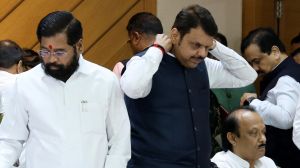India must free fuel prices: Basu
Rising inflation monster has to be curbed even if it leads to a fuel price hike,says a top economic advisor
Even as inflation touched a 19-month high of 10.16 per cent in May,a top economic advisor today said freeing fuel rates will help dampen prices within six months,even if the immediate aftermath is costlier petroleum products.
Chief Economic Advisor Kaushik Basu also said at a press conference that food inflation has petered out,while prices of some manufactured items like iron and steel are on the rise.
This may look a bit surprising,since food inflation was reported to be 16.49 per cent in May. Basu explained that it is because inflation is calculated on yearly basis,but the food price index is only slightly higher than what it was in November,2009. In May,the food inflation index stood at 296.4 points,a tad higher than 296.1 points in November.
“My belief is that fuel prices ought to be decontrolled.
I feel that a certain amount of decontrol ought to be done. If you do that,inflation may increase in the short-term,but six months down the line,inflation may in fact come down due to lower fiscal deficit,” Basu told reporters here.
The report of an expert group headed by Kirit Parikh calling for freeing petrol and diesel prices and a steep Rs 100 per cylinder hike in LPG rates and a Rs 6 per litre increase in kerosene prices is lying with the government.
The Empowered Group of Ministers had last week deferred a decision on the politically sensitive issue.
The EGoM had some consensus on completely freeing only petrol prices from government control,a move that would result in rates in Delhi being hiked by Rs 3.35 per litre.
The EGoM had discussed the impact of implementing the committee’s report on inflation,according to the source.
Freeing auto fuel prices would lead to a 1.4 per cent rise in the Wholesale Price Index (WPI),sources said.
Basu said if prices are artificially kept at a low level,the impact on inflation will be long-lasting due to the widening fiscal deficit,while if these prices are linked with global rates,the impact on inflation would be immediate but for the short-term.
Oil marketing PSUs currently lose Rs 272.5 crore a day on selling fuel below cost. They may end the fiscal with a Rs 90,150 crore revenue loss. While the loss on petrol and diesel is being met entirely by upstream firms like ONGC and OIL,the finance ministry has agreed to give Rs 26,000 crore to partly cover the Rs 31,621 crore loss on LPG and kerosene.
While inflation for the month of May rose to 10.16 per cent,official data revised figures for March to 11.04 per cent from 9.90 per cent. Basu hoped the final March figures would be the peak and the revised May numbers would not cross it.
In May,fuel inflation was at 13.05 per cent,but it was largely because of a hike in excise duty on petrol and diesel in the Budget,Basu said. On a monthly basis,this inflation was just 1.15 per cent.
Basu suggested that while some fuel prices should be decontrolled,direct subsidy should be given to vulnerable sections affected by the rise in prices.
He said that while high inflation is a matter of concern,it would come down below five per cent by this fiscal-end. The RBI had projected inflation at 5.5 per cent by then.
“Inflation is high,but not atrocious,” he added. While refusing to hazard a guess on RBI’s moves to contain inflation,he said the government and central bank’s policies were correct in the current environment. He said that while food inflation was because of shortage of supply,high prices for manufactured items were due to a rise in demand.
Basu said rising global iron and steel prices are a worry.
Official data showed that stainless steel alloy prices rose by 26 per cent,steel sheets,plates and strips grew more expensive by 14 per cent,bars and rounds by 10 per cent and other iron steel items by eight per cent.
Basu also said that sugarcane prices are showing a rising tendency.
Sugarcane prices rose by 50 per cent in May on a monthly basis.
He said if food and fuel prices were excluded,core inflation rose by 5.8 per cent in April against zero per cent in October-November.
- 01
- 02
- 03
- 04
- 05































